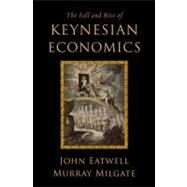- ISBN: 9780199777693 | 0199777691
- Cover: Hardcover
- Copyright: 4/18/2011
During the 1970s, when doctrines like monetarism and new classical macroeconomics ushered in an era of neoliberal economic policymaking, Keynesian economics was pushed aside. It was almost forgotten that when Keynesian thinking had dominated economic policymaking in the middle decades of the twentieth century, it had underwritten postwar economic reconstruction in both Europe and Japan, and was largely responsible for the unprecedented prosperity and stable growth of the 1950s and 1960s. The global financial crisis and recession changed all that. Influential voices in progressive economics circles began to remind us how useful Keynesian ways of thinking could be again, especially in assisting us to come to terms with our economic predicaments. When politicians across the globe were confronted with economic crisis, almost by accident they introduced pragmatic and workable measures that bore all the hallmarks of Keynesianism. This book is about this fall and rise of Keynesian economics. Eatwell and Milgate range widely across the landscape that defines their subject matter. They consider how powerful Keynesian ideas can be when applied to our past and present economic problems. They show how helpful these ideas are in explaining why we came to find ourselves in the mess we are in. They examine where and how the analytical and methodological foundations of conventional macroeconomic wisdom went wrong. They set out a blueprint for an alternative that provides a clearer, more consistent, and more applicable approach to understanding how markets work. They also highlight the interpretive shortcomings that have come to characterize Keynes scholarship itself. They do all of this within the context of a provocative reconsideration of some of the most pressing economic problems that confront financial markets and the global economy today.







